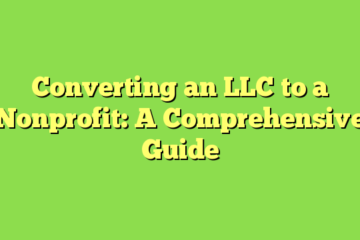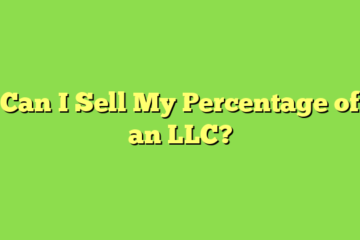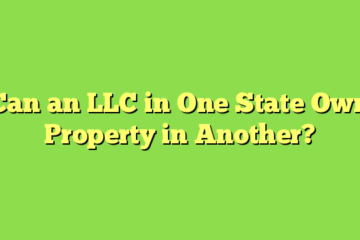When it comes to organizing and operating a church, one of the critical decisions to make is choosing the appropriate legal structure.
While churches have traditionally been established as non-profit organizations, the rise of alternative business entities like limited liability companies (LLCs) that can also be a non-profits has raised questions about their suitability for religious organizations.
As churches navigate the legal and regulatory landscape, the idea of structuring a church as an LLC has garnered attention, prompting discussions around its advantages, drawbacks, and feasibility.
In this blog post, we’ll delve into the nuances of this topic, exploring the pros and cons of establishing a church as an LLC, examining alternative structures, and providing insights to help church leaders make informed decisions.
What is an LLC?
Before we dive into whether a church can be structured as an LLC (limited liability company), it’s important to understand what an LLC actually is. An LLC is a type of business structure that provides liability protection to its owners or members. This means that the personal assets of the members are shielded from the debts and liabilities of the business itself.
LLCs are often favored by small businesses and startups because they offer tax flexibility and operational simplicity compared to corporations. However, the rules and regulations surrounding LLCs can vary from state to state, and it’s crucial to comply with the specific requirements in your area.
Churches and Legal Structures
Traditionally, churches have been organized as non-profit organizations, often structured as:
- Unincorporated Associations: An informal group of individuals united for a common purpose, like a church congregation.
- Charitable Trusts: A legal entity created to hold and manage assets for charitable purposes, such as church property.
- Non-Profit Corporations: A formal legal structure specifically designed for non-profit organizations, including churches.
The choice of legal structure can impact various aspects of a church’s operations, including taxation, liability protection, and governance.
Can a Church be an LLC?
The short answer is: yes, a church can potentially be structured as an LLC in some states, but it’s not a straightforward process, and there are important considerations to keep in mind.
Pros of Structuring a Church as an LLC
Limited Liability Protection
As mentioned earlier, LLCs offer personal liability protection for their members, which can be beneficial for church leaders and decision-makers.
Tax Flexibility
LLCs can choose to be taxed as corporations, partnerships, or sole proprietorships, allowing for potential tax advantages depending on the church’s circumstances.
Operational Simplicity
LLCs generally have fewer formal requirements compared to non-profit corporations, which can simplify certain aspects of church management.
Cons of Structuring a Church as an LLC
Loss of Tax-Exempt Status
Churches organized as non-profit entities are typically exempt from federal income tax. However, if structured as an LLC, a church may lose this valuable tax-exempt status.
State Restrictions
Some states may prohibit or place strict limitations on churches operating as LLCs, as they are primarily designed for commercial endeavors.
Compliance Complexities
Structuring a church as an LLC may require navigating complex legal and regulatory requirements, potentially increasing administrative burdens.
Alternatives to Consider
If organizing a church as an LLC proves challenging or unsuitable, there are alternative structures to consider:
- Non-Profit Corporation: This traditional structure is specifically designed for organizations like churches and offers tax-exempt status while providing liability protection.
- Religious Corporation: Some states have separate legal provisions for “religious corporations,” which may be better suited for churches than traditional non-profit or LLC structures.
Final Thoughts
Deciding on the appropriate legal structure for a church is a complex decision that should be carefully evaluated with the guidance of legal and tax professionals. While structuring a church as an LLC may offer certain advantages, it’s crucial to weigh the potential drawbacks and ensure compliance with applicable state laws and regulations.
Ultimately, the choice of legal structure should align with the church’s mission, values, and long-term goals while providing the necessary protections and operational framework for sustainable growth and service to the community.

Alfie Wilson, Esq., is a legal content writer with expertise in business formation, criminal law, veterans disability, family law, DUI law, personal injury, animal welfare, and legal writing. He holds a J.D. from Emory University School of Law and has experience in appellate advocacy and regulatory matters. Alfie’s passion lies in breaking down complex legal topics for a non-lawyer audience. He currently writes for law firms and non-profits on various issues and resides in Arlington, Virginia.








